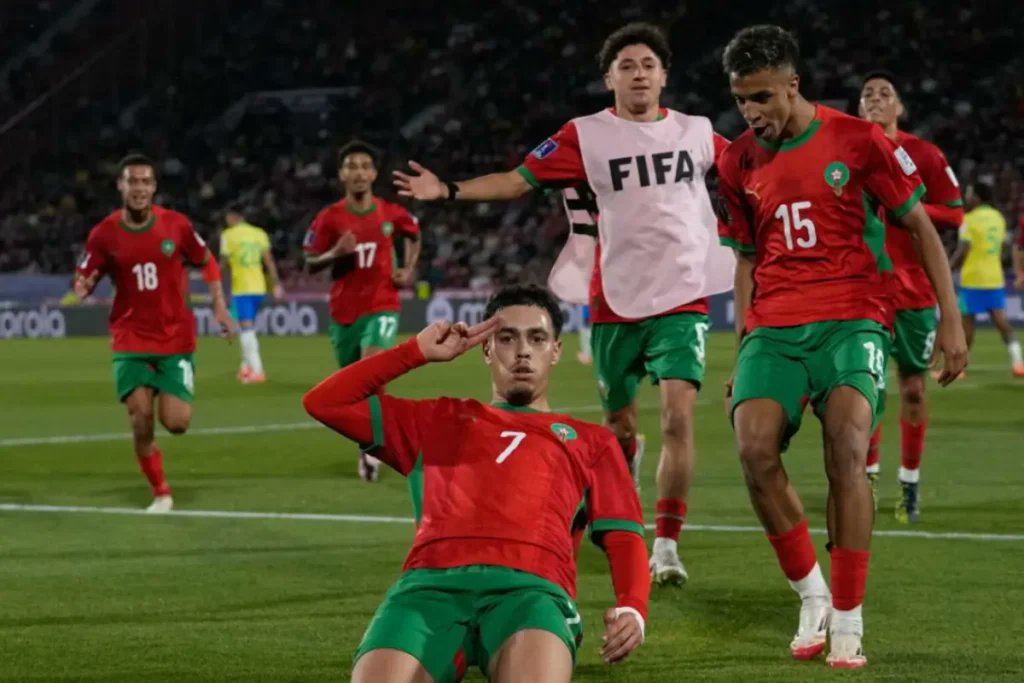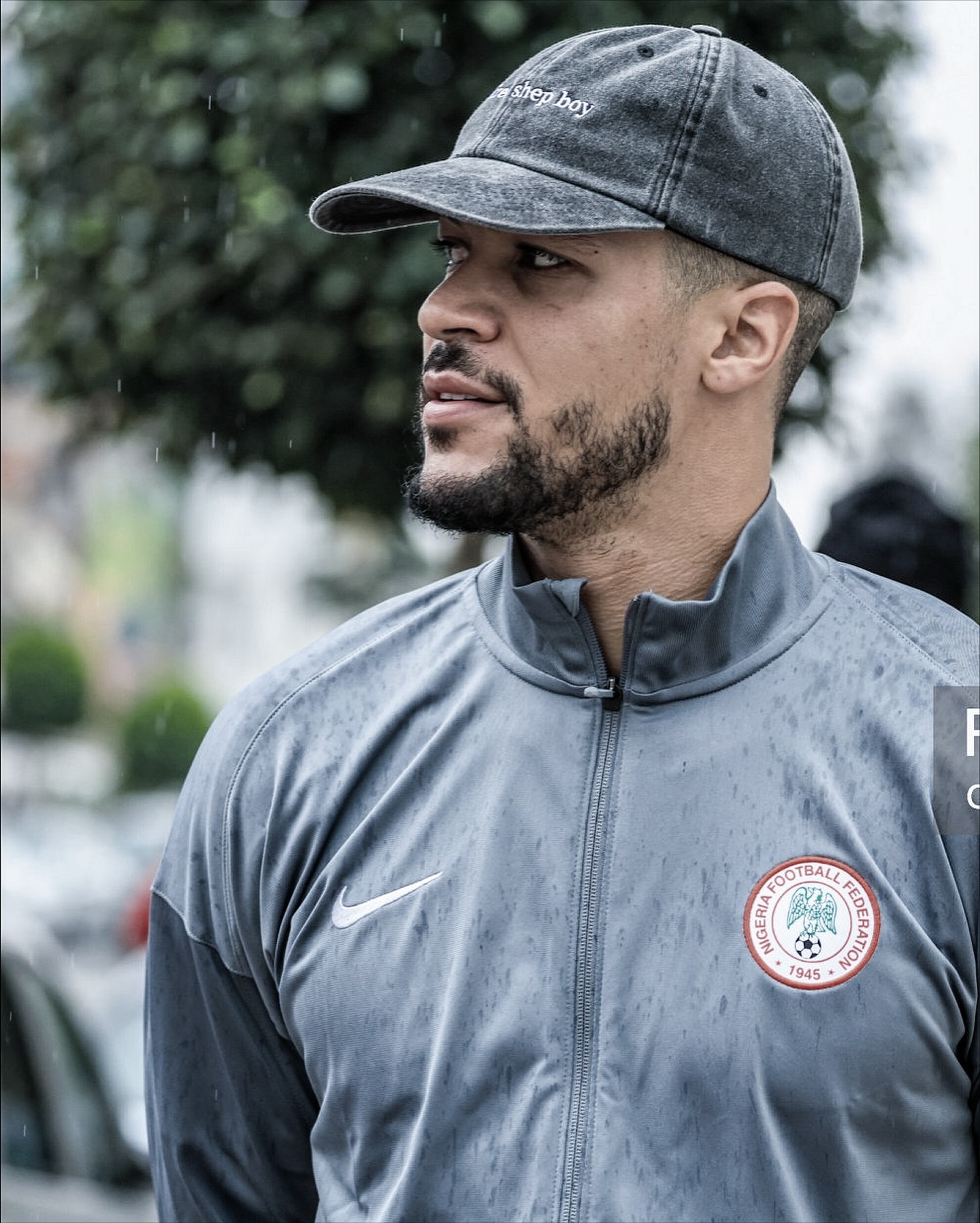Morocco’s U-20 national football team has made history by advancing to the FIFA U-20 World Cup final for the first time, after a thrilling victory over France in a tense semifinal decided by penalties. The young Atlas Lions held their nerve to win 5–4 in the shootout after a 1–1 draw in regular and extra time, etching their names into Moroccan football folklore.
This achievement marks one of the most remarkable moments in Morocco’s football history. Not only does it affirm the country’s growing reputation as a continental powerhouse, but it also underscores the effectiveness of youth development programs that have been steadily producing world-class talent.
A Tense, Tactical Battle
From the opening whistle, it was clear that both sides were aware of the stakes. France, boasting one of the most technically gifted squads in the competition, dominated possession in the early minutes. Morocco, on the other hand, adopted a disciplined defensive approach, staying compact and waiting for opportunities to counterattack.
The first breakthrough came in the 32nd minute. After a quick transition play, Moroccan forward Yassine Zabiri darted into the box and was brought down by a French defender. Initially, the referee waved play on, but after a VAR review, the foul was confirmed inside the area. Zabiri stepped up to take the penalty, and while his effort struck the post, the ball rebounded off the French goalkeeper and rolled into the net. It was an ugly goal, but it counted. Morocco led 1–0, and the celebrations among the Moroccan fans were electric.
France tried to respond immediately, pushing high and forcing Morocco deep into their half. However, the North Africans’ backline, led by captain Rayan Benyahia, stood firm. Their composure under pressure was a testament to the tactical discipline instilled by coach Mohamed Ouahbi.
French Response and Late Drama
The second half began with France showing greater urgency. Their passing tempo increased, and they started to find gaps between Morocco’s midfield lines. In the 58th minute, the pressure finally paid off. A slick one-two combination on the right flank allowed Lucas Michal to slip into the box unmarked, and he calmly slotted home to level the score at 1–1.
From that point, the match became an end-to-end contest. Morocco nearly restored their lead when Ayoub Moujahid’s curling effort grazed the crossbar in the 67th minute. France also went close with a header that narrowly missed the post.
The physical intensity rose as fatigue set in, and several players from both sides required treatment. The final minutes of regular time were played at a frenetic pace, but neither team could find the winning goal. As the referee blew for full time, it was clear that the contest would need extra time to decide who would make history.
Extra Time and the Penalty Shootout
Extra time was characterized more by tension than fluid football. Both sides appeared wary of making a costly mistake. In the 104th minute, France were reduced to ten men after their midfielder received a second yellow card for a shirt pull that stopped a promising Moroccan counterattack. Despite the numerical advantage, Morocco could not break down France’s organized defense.
As the match edged toward penalties, Morocco made a bold tactical decision. Coach Ouahbi substituted his first-choice goalkeeper in the 119th minute, bringing on Abdelhakim El Mesbahi, known for his penalty-saving prowess. The move would prove inspired.
The penalty shootout was a nerve-wracking affair. Both teams converted their first three kicks before France’s fourth taker fired high over the bar. Morocco’s substitute keeper then made a crucial save on the fifth French attempt, diving low to his left to deny what would have been the equalizer. When Moroccan captain Benyahia converted the final penalty, the stadium erupted in celebration.
Morocco had done it; they were through to their first-ever FIFA U-20 World Cup final. Players collapsed to the turf in tears of joy as the coaching staff rushed the field. For a country that has been steadily building its football legacy, this was a crowning moment.

The Road to the Final
Morocco’s journey to the final has been nothing short of inspiring. Drawn into a difficult group alongside Brazil, South Korea, and Poland, the Atlas Cubs defied expectations by topping their group with two wins and a draw. They defeated South Korea 2–0 in their opening match, drew 1–1 with Brazil, and edged out Poland 1–0 to secure qualification.
In the knockout rounds, Morocco’s resilience truly shone through. They beat Nigeria 2–1 in the round of 16 after a late comeback goal from Moujahid. In the quarterfinals, they overcame Uruguay 3–2 in an intense match that showcased their attacking flair and tactical adaptability. The semifinal victory over France capped an extraordinary campaign defined by teamwork, grit, and belief.
This success is also a reflection of Morocco’s long-term investment in youth development. The Mohammed VI Football Academy, established in 2009, has become a breeding ground for some of the country’s finest talents, many of whom are now starring for the senior national team and clubs across Europe.
Facing Argentina in the Final
The final, scheduled for Sunday, October 19, will see Morocco take on Argentina at Santiago’s Estadio Nacional Julio Martínez Prádanos. Argentina has been the standout team of the tournament, winning all six of their matches and conceding only twice. Their attacking trio, led by captain Franco Valenti, has terrorized defenses throughout the competition.
Morocco, however, has shown that they are capable of matching any team in both mental and tactical strength. Their defensive discipline, quick transitions, and set-piece efficiency have been their most potent weapons. While Argentina enters the final as the favorite, Morocco’s underdog spirit could once again prove decisive.
Pride, Belief, and a Nation’s Dream
Speaking after the semifinal, coach Mohamed Ouahbi expressed immense pride in his players, calling them “heroes who have written a new chapter in Moroccan football.” He added, “We came here not just to participate but to compete. We’ve made history, but we’re not done yet. The final is another challenge, and we’ll give everything to bring the trophy home.”
The sentiment was echoed across Morocco, where fans took to the streets of Casablanca, Rabat, and Marrakesh to celebrate the team’s achievement. Social media was flooded with messages of support from celebrities, politicians, and football legends alike. The Moroccan Football Federation announced plans to provide charter flights for fans wishing to attend the final in Chile.
For the players, the journey has been both emotional and educational. Many of them have grown up watching the Moroccan senior team’s recent successes, including their historic semifinal run at the 2022 FIFA World Cup. Now, they are carrying that same spirit into youth football, proving that Morocco’s football renaissance is no fluke; it’s the result of careful planning and passion.
Looking Ahead
As the countdown to the final begins, Morocco’s young stars stand on the brink of immortality. A victory against Argentina would not only bring the country its first FIFA title but also cement its status as a global force in football.
Regardless of the outcome, Morocco’s run to the U-20 World Cup final has already inspired millions across Africa and the Arab world. It has been shown that with vision, structure, and belief, even nations outside the traditional football elite can rise to the biggest stages.
Morocco’s youth have done more than just play football; they have carried a nation’s pride, broken barriers, and proved that dreams are achievable when talent meets determination.
On Sunday, when the whistle blows in Santiago, they will once again have the chance to make history, this time, with the world watching.





